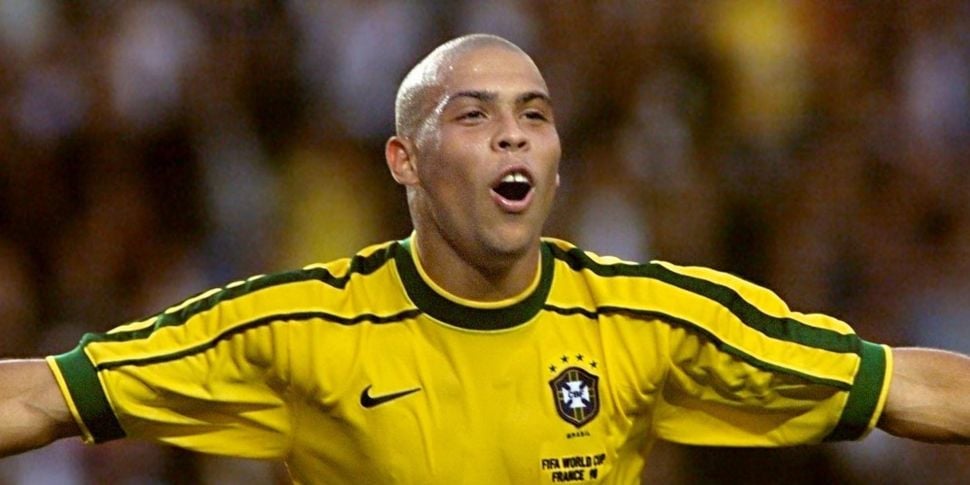In the annals of football history, certain events transcend the game itself, becoming legendary tales recounted by fans across generations. Ronaldo’s iconic goal against Compostela is one such moment—a dazzling display of skill, power, and grace that remains etched in memory.
SD Compostela, a team with a modest history mostly spent in the Spanish regional leagues, found itself unwittingly thrust into global fame during Ronaldo’s spellbinding season with Barcelona in 1996-97. Despite finishing on the losing side of a 5-1 defeat, Compostela’s encounter with Ronaldo became immortalized, not for their efforts, but for the single act of sublime brilliance that unfolded on the pitch.
The backstory of this extraordinary goal begins with Barcelona defender Gica Popescu, whose seemingly innocuous clearance in the first half turned into a fateful pass to an oncoming Ronaldo. Even in those early days of his career in Spain, Ronaldo had already instilled enough fear in defenders to make Compostela’s backline look like a collection of eager yet helpless participants in a unique footballing spectacle.
As Ronaldo galloped toward the Compostela goal, chaos ensued. The defenders collided in their panic, leaving him to retrieve the ball and face off against midfielder Saïd Chiba. In a desperate bid to halt Ronaldo’s advance, Chiba resorted to a barrage of fouls, each attempt more futile than the last. Ronaldo’s ability to ride tackles, maintaining control with seemingly preternatural balance and composure, signified his dominance in an era where physicality was often the primary defensive strategy.
As Compostela’s last line of defense, goalkeeper Fernando Peralta could only watch in awe. His thoughts mirrored the collective slackening of jaws in the stadium: “Oh my God, this guy is amazing.” When even your opponents are mesmerized, it speaks volumes about the sheer artistry on display.
Breaking free from Chiba’s grasp, Ronaldo accelerated, leaving trailing defenders in his wake. His rapid footwork and intuitive ball control made it appear as though the laws of physics were mere suggestions rather than rules. The brief moment when he seemed to lose control only set up the perfect chance, as if his missteps were part of an orchestrated routine.
Finally, with a deft strike, Ronaldo slotted the ball into the bottom corner of the net, sealing the goal that would solidify his legend. The reactions from the sidelines were as telling as the action on the pitch. Manager Bobby Robson, clutching his head in disbelief, seemed both awestruck and slightly annoyed, as though contemplating the futility of ever witnessing something equally spectacular. Assistant coach José Mourinho, however, celebrated with unrestrained joy.
This goal became more than just a highlight; it was a marketing dream, encapsulated by Nike’s advertisement that posed a hypothetical divine conversation. Despite the triumph, Ronaldo’s departure from Barcelona was marred by acrimony, leaving a bittersweet taste for the fans who harbored mixed emotions about this fleeting genius.
Reflecting on Ronaldo’s Compostela goal, it’s clear that this was a turning point in his career. While injuries would eventually temper his physical prowess, the memories of his extraordinary feats during that period continue to resonate. Ronaldo’s goal against Compostela was not just a showcase of individual brilliance; it was a reminder of football’s power to captivate and inspire.
Click here to get it while stocks last.

Clark Kent
Clark Kent is a Fijian journalist known for sharp, in-depth political interviews, especially during his time at the Daily Planet. Now at The New York Times, he’s recognized for his skill in asking tough questions that yield candid responses from high-profile figures. His straightforward approach has made him a leading voice in political journalism.


